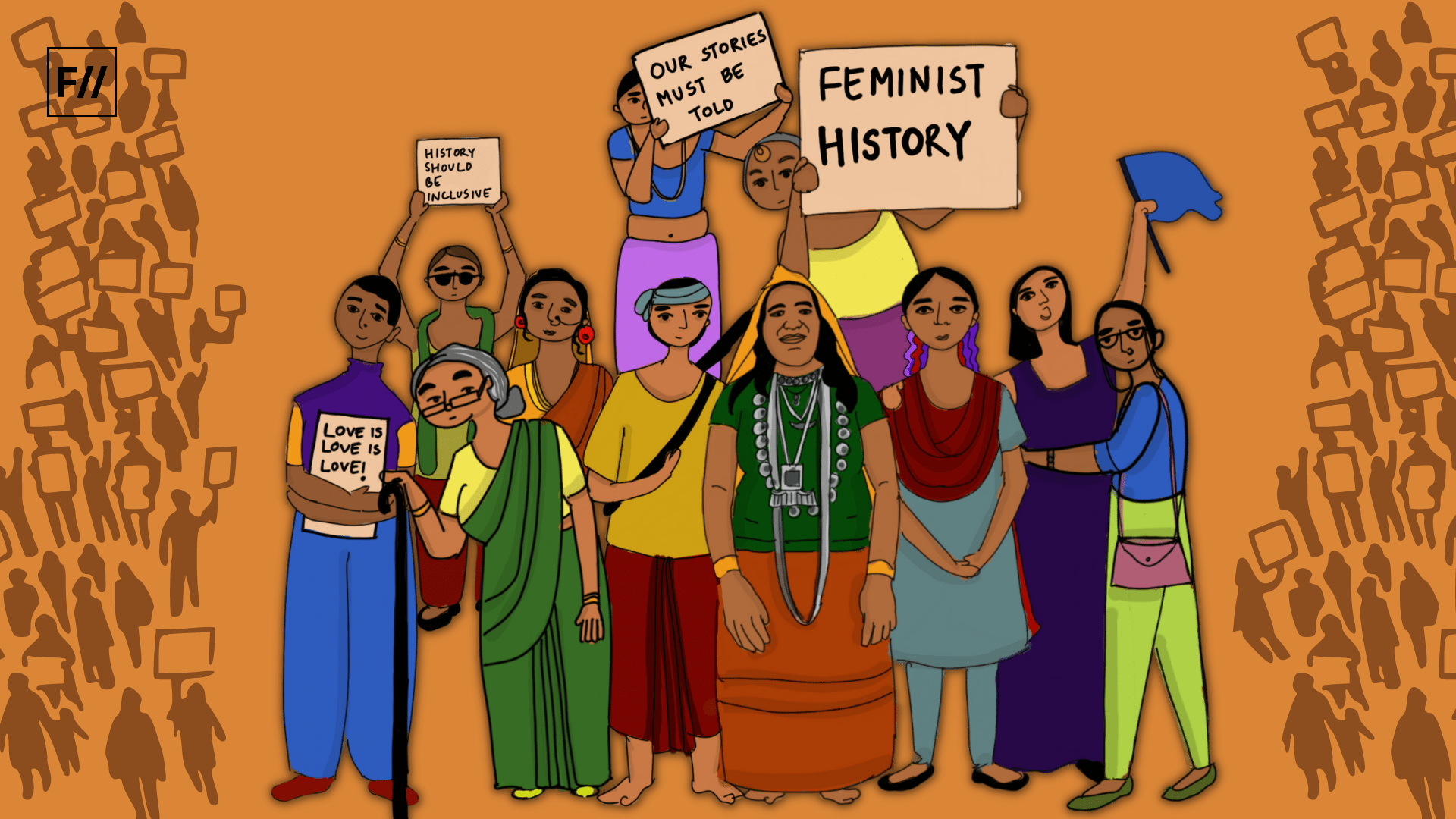March is a significant month in terms of the feminist history. In 1995, the United Nations declared March as women’s history month in order to celebrate the contribution and achievements of women in the American history. Since then, March is globally celebrated as women’s history month.
March 8th is also celebrated as International Women’s Day, to celebrate, commemorate and honour the social, economic, legal and political victories of women and the feminist movement.
History is how we express our anxieties, collective aspirations, mark our progress as a civilisation and find the roots of how we came to be. It is extremely important to approach history with an intersectional gender lens so as to make sure that it does not erase narratives of women, queer individuals, trans women and people and communities from marginalised social locations. These narratives are often controlled by upper caste, socially mobile, cis-het men, which is detrimental to the comprehensive documentation and honest reflection of history

When we look at the month of March in the India context, it is significant to address the diverse, intersectional landscape of women, their realities and political negotiations. It is also important to critique the monocultural conceptualisation of the White, savarna feminist discourse to mark the lived experiences and challenges posed by caste, social location, sexuality and other factors that are catalysts in further marginalising women based on their identities.
History often only documents those who have access to the mainstream, leaving other social and cultural groups in oblivion. We are seldom aware of the histories of women and queer individuals from tribal communities, Dalit/Bahujan identities or geographic localities removed from the mainland, as we are about cis-heteronormative, privileged women.
History is also riddled with the male gaze since most of it was documented by men, for men, to amplify the conquests of other men and make them immortal. Women are either jingoistic heros, sacrificing mothers or ravishing queens in this narrative. We are seldom let in on how they lived amidst patriarchal structures, especially in times when they had no means to be irreverent.
Another significant fact is that history also entails private history. Apart from the histories of how things were in the public sphere, private histories, oral traditions, personal and generational wisdom passed down from older women, etc. are also integral to our historical narratives. But these are not considered ‘historic’ enough to make it to documentations.
History is how we express our anxieties, collective aspirations, mark our progress as a civilisation and find the roots of how we came to be. It is extremely important to approach history with an intersectional gender lens so as to make sure that it does not erase narratives of women, queer individuals, trans women and people and communities from marginalised social locations.
These narratives are often controlled by upper caste, socially mobile, cis-het men, which is detrimental to the comprehensive documentation and honest reflection of history.
Also read: Remembering Jayalalithaa: Six Times CM Of Tamil Nadu & Amma To Tamizh Makkal | #IndianWomenInHistory

In this context, we at Feminism In India invite submissions on Women’s History Month throughout March 2022. Here are some pointers for you to consider while writing your articles on this topic:
- Forgotten women – profiles/commentaries on women in history whose contributions have been neglected and forgotten
- Queer, trans, tribal, Bahujan, Adivasi, Disabled women’s histories and contributions
- Historic narratives – male gaze in history, writing history from male perspective, need for gender lens
- History of feminist movements, protests
- Women’s resistance movements from the North-Eastern states and Jammu &Kashmir
- Contemporary women and the history of their work and contributions
- History in pop culture – representation of history and historic women in popular culture
- Private histories – family and generational stories of women’s resilience and struggles
- Personal essays on how historic women have shaped individual journeys
- Book and literature review of historic fiction and non-fiction
- Appropriation of historic voices
- The importance, impact and relevance of documenting feminist history
- Women in mythologies and their contemporary interpretations
- Interviews and features on women historians, academicians, scholars, activists and writers
This list is not exhaustive and you may feel free to write on topics within the theme that we may have missed out here.
We understand that some topics may be personal and hence, if you wish to publish them anonymously, kindly mention that in your email.
You may send in your submissions to sukanya@feminisminindia.com We look forward to your drafts and hope you enjoy writing them!
Also read: Urdu Women’s Magazines: The History Of Publications That Pioneered Gender-Based Discourse
Featured Illustration: Ritika Banerjee for Feminism In India
About the author(s)
Feminism In India is an award-winning digital intersectional feminist media organisation to learn, educate and develop a feminist sensibility and unravel the F-word among the youth in India.





Nice..keep it up